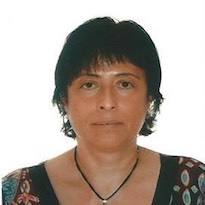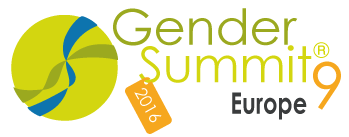
Minister Naledi Pandor
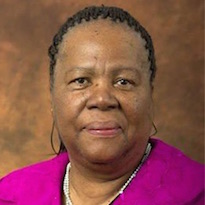
Minister of Science and Technology, South Africa.
The importance of the involvement of women in STI for the development of nations
Plenary: Role of policy in achieving societal well-being through science and technology
Naledi Pandor is South Africa’s Minister of Science and Technology. A life of exile from 1961 until 1984 resulted in an international flavour to her education. She holds a BA from the University of Botswana and Swaziland and an MA in Education from the University of London. In 1992 she studied for a Diploma in Higher Education, Administration and Leadership at Bryn Mawr in the USA. In 1997 she completed an MA in Linguistics at the University of Stellenbosch and a Diploma in Leadership in Development at the Kennedy School of Government at Harvard, while she was serving as an MP.
Commissioner Carlos Moedas
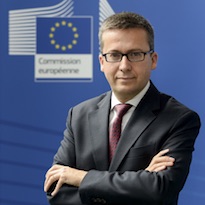
Commissioner for Research, Science and Innovation, European Union.
Video address
Plenary: Strategic priorities for regional STEM gender equality policy
Carlos Moedas is the European Commissioner for Research, Science and Innovation. His responsibilities include ensuring that research funding programmes, notably Horizon 2020, contribute to the European Commission's jobs, growth and investment package. He is also responsible for promoting the international excellence of the EU's research and science, and strengthening research capacities and innovation across all Member States. Other duties include evaluating how EU‑funded research can be used more effectively; ensuring that Commission proposals are based on scientific evidence, as well as encouraging private companies to apply research to meet challenges faced by society and create more high-quality jobs.
Dr B. Mario Pinto
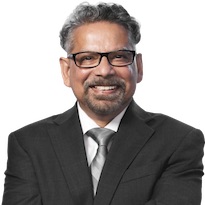
President, Natural Sciences and Engineering Research Council (NSERC), Canada.
Plenary: Role of policy in achieving societal well-being through science and technology
Expanding the dialogue on diversity to benefit STEM
Plenary: Strategic priorities for regional STEM gender equality policy
Dr Pinto received his B.Sc. and Ph.D. in Chemistry from Queen’s University. He served as Professor, Chair of Chemistry and Vice-President Research at Simon Fraser University (SFU), President of the Canadian Society for Chemistry and Vice-Chair of the Chemical Institute of Canada. Dr Pinto has received numerous awards recognizing the quality and impact of his research, including Fellowship in the Royal Society of Canada. He has also established a track record for developing exciting new models of innovation. Successes include: VentureLabs®; Venture Connection®; Zone Start-Ups India, a joint venture between Ryerson University, SFU and the Bombay Stock Exchange Institute; and, a partnership between SFU and the Indian Oil Corporation Ltd. in hydrogen fuel cell technology.
Prof Alice Abreu
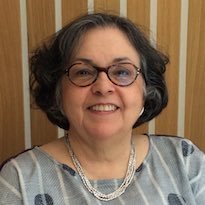
Director, GenderInSITE; Emeritus Professor, Federal University of Rio de Janeiro (UFRJ), Brazil.
Parallel: Connecting gender science and sustainable development
Alice Abreu, Director of GenderInSITE, is Emeritus Professor of the Federal University of Rio de Janeiro (UFRJ) in Brazil. Professor Abreu is the former Director of the Regional Office for Latin America and the Caribbean of the International Council for Science (ICSU) from 2007 to 2011. She was also the Regional Coordinator of the ICSU Rio+20 Initiative, working with the ICSU team to prepare and organize the scientific activities of the Rio+20 Conference in 2102. PhD in Social Sciences from the University of São Paulo Brazil (1980), and M.Sc. in Sociology from the LSE of the University of London (1971), she was a Full Professor of Sociology at the UFRJ until 2005, and has published extensively in sociology of work and gender.
Dr Saher Ahmed

Athena SWAN Project Manager, Wellcome Trust Sanger Institute (WTSI), UK.
Sex in Science at the Wellcome Trust Sanger Institute and European Molecular Biology Laboratory - European Bioinformatics Institute: Embedding Gender Equality within Leadership
Parallel: Interventions to improve participation, retention, and leadership
Dr Saher Ahmed is the Athena SWAN Project Manager at the Wellcome Trust Sanger Institute (WTSI) and co-ordinates the Wellcome Genome Campus-wide Sex in Science Programme. Saher holds a BSc in Physics, MSc in Applied Radiation Physics and a PhD in Nuclear Physics (University of Birmingham). Saher has over a decade of experience of working on Diversity in STEM projects and has set-up national projects to tackle the under-representation of women in STEM. Saher currently manages WTSI’s Women in Science programme and is responsible for influencing change in policies, practices and provisions that disproportionately disadvantage people according to their gender.
Ana Arana Antelo
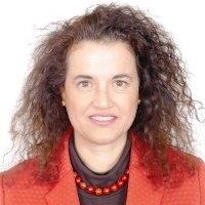
Head of Unit, Science With and For Society, Directorate General Research & Innovation (DGR&I), European Commission.
Shaping the Roadmap for RRI learning from the experience of advancing gender in STEM
Plenary: Social impact and responsibility of science and science policy
Ana Arana Antelo is a lawyer specialised in European Law. She works in the European Commission as Head of Unit for "Science with and for Society" in the Directorate General for Research and Innovation, where she also headed the "Research Infrastructures" unit. She was previously Deputy Head of Cabinet of the Commissioner responsible for Research, Innovation and Science. Prior to that she worked in the Directorate General for Transport and Energy, where she headed the unit responsible for the electricity and gas internal markets. She has also worked in the Directorate General for Competition, as well as in the Directorate General for External Relations dealing with relations with the then New Independent States of the former Soviet Union. Before entering the European Commission, Ana worked as head of the legal department in a software company.
Prof Uduak Archibong
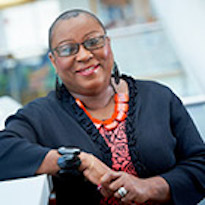
Professor of Diversity, University of Bradford, UK.
GENOVATE Model for Gender Equality in Transforming Research and Innovation
Parallel: Developing and testing gender equality plans and interventions for structural change in research performing organisations
Uduak Archibong is Professor of Diversity at the University of Bradford, UK, where she directs the Centre for Inclusion and Diversity and provides strategic oversight for equality and diversity across the institution. She obtained a BSc (First Class) from the University of Nigeria, Nsukka, Nigeria in 1990 and a PhD from Hull University in 1995. She is Visiting Professor at several international universities, a Fellow of the West African College of Nursing and a Fellow of the Royal College of Nursing. She is a member of the Chartered Management Institute. Uduak is recognised as a thought leader in inclusion and diversity and currently leading in setting agenda to drive research, learning and knowledge exchange activities internationally. She has a sustained, distinguished presence in the field of diversity management and much of her work has focused on inclusive workplaces, representative diversity, diversity-competent leadership in public, private and third sector organisations. Informed by over 25 years' experience of working in the higher education sector, Uduak’s academic and professional work has major impacts locally, nationally and globally.
Prof Sveva Avveduto
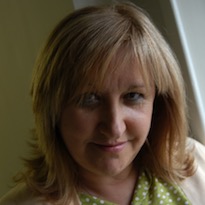
Research Director, National Research Council (CNR), Italy.
Careers in physics : which perspectives for women?
Parallel: Transforming organizational structures, practices, and working conditions in a systematic way
Sveva Avveduto is the Research Director at the National Research Council, IRPPS of Italy. Her main research interests concern science and higher education policy and are focused on studies on human resources for S&T, mobility issues of scientists, gender issues, science and society. She is the Head of the CNR Research Unit on Human Resources and Knowledge Society. She was vice-chair OECD Group on Research Institutions and Human Resources and Chair OECD Group on Steering and Funding of Research Institutions. She has been national Expert in OECD Activities concerning postgraduate training, women in science, employment and mobility. She has worked or is currently working as WP leader, in several Projects funded by the European Commission: GENERA, EVIDENCE, CARISMAND, CITYCOP, MAPPING, RESPECT, SMART, CONSENT, SET-DEV. She has been professor at the Graduate School ‘Socialtrends’, University of Rome ‘La Sapienza’ and at the Master on Science, Technology and Innovation at Scuola Nazionale dell’Amministrazione in Rome and Bologna.
Dr Thomas Berghöfer
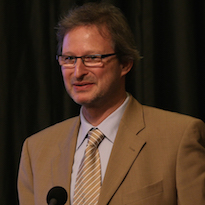
Senior researcher, Deutsches Elektronen Synchrotron (DESY), Germany.
GENERA: Measuring, monitoring, and advancing gender equality in Physics RPOs
Plenary: Developing and implementing gender equality measures for fair advancement in STEM careers
Thomas Berghöfer studied Physics and Astrophysics at the universities of Marburg and Bochum, and received his PhD from the Ludwig Maximillian University of Munich. During his active research career he was working in X-ray and EUV astronomy at the Max-Planck-Institute for Extraterrestrial Physics, the Space Sciences Lab of UC Berkeley, and the observatory of University of Hamburg. While working at the University of Hamburg he was appointed as one of the women’s representatives in the faculty of physics. Later he became a science programme manager in the German research funding system of the federal government. He is very experienced in coordinating larger consortia in Europe such as the ERA-NETs ASPERA and ASPERA-2.
Dr Sally Day
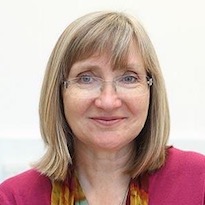
Senior Lecturer, Electronic and Electrical Engineering, University College London (UCL), UK.
50:50 Participation in Pre-19 Engineering Education
Parallel: Interventions to improve participation, retention, and leadership
Dr Sally Day is a Senior Lecturer at University College London in Electronic and Electrical Engineering. Her research is in the field of liquid crystal devices and applications; she has worked in industrial research labs as well as at UCL. She is Head of Teaching in the department and has always been committed to outreach work, particularly in order to increase diversity in Engineering by developing activities in schools that show that Engineering is creative and benefits society and people. She has also been involved in women’s networks in UCL and the institutional Athena SWAN application.
Alison Bert
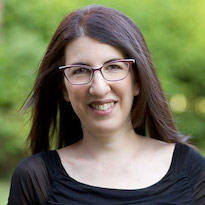
Editor in Chief, Elsevier Connect.
How to make a case for gender diversity to people who don’t know why they should care
Parallel: Communicating gender to inform policy and change societal attitudes (selected abstracts)
As Editor-in-Chief of Elsevier Connect, Dr Alison Bert leads a team of contributors from around the world to publish daily stories for the global science and health communities. Elsevier Connect provides a lens to explore the complex and ever-evolving worlds of science and publishing. Contributors include Elsevier colleagues as well as members of the research community at large. As a journalist, Alison helps them bring their stories to life in words and images, making complex topics engaging and meaningful to a global audience. This year, Elsevier Connect won a North American Excellence Award for Science & Education.
Prof Gloria Bonder
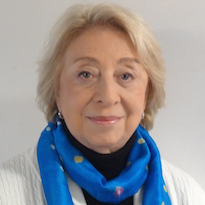
UNESCO Regional Chair on Women, Science and Technology; GenderInSITE Regional Focal Point for Latin America and the Caribbean; Director of the Gender, Society and Policies Area of FLACSO Argentina (Latin American School of Social Sciences, Argentina.
Parallel: Connecting gender science and sustainable development
Dr Gloria Bonder is the Director of the Department of Gender, Society and Policies of the Latin American Postgraduate Institute of Social Sciences (FLACSO Argentina). She coordinates two regional programmes including the UNESCO Regional Chair on Women, Science and Technologyin Latin America and the e-learning master’s programme on Gender, Society and Public Policies. Bonder is the coordinator of the Global Network of UNESCO Chairs on Gender. Since 2014, she has coordinated the region’s activities in the global GenderInSITE programme, through her role as the UNESCO Regional Chair. The programme aims to influence policies and policy makers in science, technology, innovation and engineering, to integrate gender equality principles and goals.
Dr Fredrik Bondestam
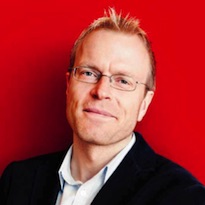
Head of operations for GMA (Gender Mainstreaming Academia in Sweden), Swedish Secretariat for Gender Research; NIKK – Nordic Information on Gender, Gothenburg University, Sweden.
Rolling out systematic approach to gender mainstreaming in academia in Sweden
Plenary: Strategic priorities for regional STEM gender equality policy
Dr Fredrik Bondestam has a doctorate in sociology (2004, Uppsala University) on feminist theory, gender equality and gender mainstreaming in academia, and has since then done research on gender and higher education in different respects, foremost on gender and organisational change, critical and feminist pedagogy and teaching, sexual harassment and violence, implementation of gender equality and gender mainstreaming, among other. His research spans other fields as well, for example risk, organisation and masculinities, gendered teaching in elementary schools, the role of feminist theory and methodology in sociological research. His main field of expertise is thus research politics, higher education, gender and gender mainstreaming in a broad sense, emanating from pioneering work at the Centre for Gender Research, Uppsala University, within the framework of a Centre of Excellence.
Dr Hans M. Borchgrevink
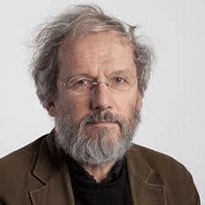
Former Director of Medicine, and Special Adviser for International Affairs Staff, The Research Council of Norway (RCN).
Linking EURAXESS, Marie Skłodowska-Curie Actions and GEPs
Parallel: Transforming organizational structures, practices, and working conditions in a systematic way
Hans M. Borchgrevink MD MHA BA is former Director of Medicine, and Special Adviser for International Affairs Staff in The Research Council of Norway (RCN). Before he was consultant/researcher in audiology and brain function diagnosis at the University Hospital of Oslo. His efforts on gender issues include the EU ERA Communication Expert Advisory Group 2013 (subgroup gender), the EU Gender Impact Assessment Expert Advisory Group (2013), the Science Europe Task Force on Gender and Diversity (2013), and organiser/chair/invited speaker at the European Gender Summits 2011-15. Now retired, he is Vice Chair of the Marie S Curie Advisory Group (2014-) and in the EURAXESS Top III Advisory Group (2015-).
Rano Burkhanova
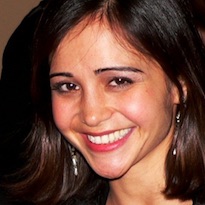
Head of Talent Development Europe, Human Resources, Elsevier, The Netherlands.
EDGE Initiative at Elsevier: Leading the Way Through Diversity
Parallel: Transforming organizational structures, practices, and working conditions in a systematic way
Rano Burkhanova is the Head of Talent Development Europe and the global lead for the EDGE gender diversity program implementation at Elsevier. Rano has more than 10 years of work experience in leadership development and talent management. She has a passion for diversity and inclusion, coming from Tajikistan and having lived in five countries and worked in three international locations in her career. She thrives on bringing together people from different cultures and bridging the differences. She was educated in Russia and the United States and holds a master’s degree in Industrial and Labor Relations with a concentration in Human Resources and Organizational Behavior from Cornell University.
David Campbell

Chief Scientist, Science-Metrix.
She Figures: data gaps and limitations, as well as future directions
Plenary: Improving quality of STEM gender equality indicators
David Campbell is Chief Scientist at Science-Metrix where, over the last 12 years, he has used his quantitative and data mining expertise to conduct more than 80 projects requiring the production of bibliometric and other S&T indicators. Mr Campbell has contributed to the statistical analyses for several bibliometric assessments, program evaluations and policy reports using mainly primary data obtained from bibliographic data sources and surveys, as well as secondary data from statistical offices. Mr Campbell has also performed original data mining analyses to inform science-based programs, policies or research directions. Mr Campbell is also responsible for data quality control and has contributed to the implementation of a rigorous protocol to guarantee the highest quality and integrity of bibliometric deliverables.
Dr Imogen R. Coe
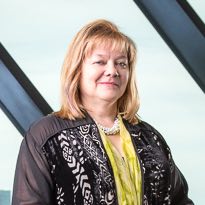
Dean of the Faculty of Science; Professor of chemistry and biology, Ryerson University, Canada.
Parallel: Framework for international collaboration to improve institutions and accelerate change
Dr Imogen R. Coe is the Dean of the Faculty of Science and a professor of chemistry and biology at Ryerson University. She is also an affiliate scientist at the Li Ka Shing Knowledge Institute, Keenan Research Centre at St. Michael’s Hospital in Toronto, Canada. Dr Coe is a cell biologist and her research program focuses on understanding the mechanisms which enable certain types of drugs to get in to cells. Dr Coe is known nationally and internationally for her work on the Equity, Diversity and Inclusion (EDI) in STEM in Canada.
Dr Beverley Damonse
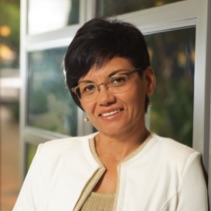
Group Executive: Science Engagement and Corporate Relations, National Research Foundation of South Africa (NRF).
Plenary: Tackling gender inequalities in Health
STEM and gender in South Africa. Taking an intersectional perspective
Plenary: Strategic priorities for regional STEM gender equality policy
Beverley is the Group Executive: Science Engagement and Corporate Relations of the National Research Foundation of South Africa, driving policy and strategy development and implementation in the areas of advancement of research and technology, public communication and engagement with science, science education as well as corporate communications and stakeholder engagement. The NRF is the premier research and science development agency in South Africa which promotes South Africa’s research interests across the country and internationally.
Prof Inés Sánchez de Madariaga
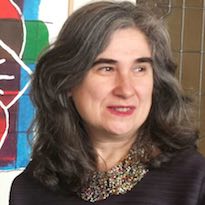 UNESCO Chair on Gender Equality Policies in Science, Technology and Innovation.
UNESCO Chair on Gender Equality Policies in Science, Technology and Innovation.
Parallel: Connecting gender science and sustainable development
Inés Sánchez de Madariaga, Arch, PhD, MSc, is an internationally recognized expert on gender in research, architecture, planning and development. Inés is Professor of Urban Planning and Rector’s Delegate for Gender Equality at the Technical University of Madrid. She has been Visiting Scholar at Columbia University, NY, the London School of Economics, and the School of Architecture Bauhaus -Weimar. In addition to her academic appointments she has held public office as Director fo the Women and Science Unit at the Cabinet of the Spanish Secretary of State for RTD; Deputy General Director for Architecture; Executive Advisor to the Minister of Housing; member of the Board of Directors of the Spanish Public Society for Rental Housing; member of the Cabinet of the Minister of Research and Innovation.
Hayley Dunne
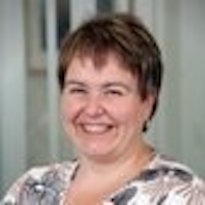
Strategic Lead for Delivery, Chwarae Teg/ Fair Play, Wales, UK.
Parallel: Framework for international collaboration to improve institutions and accelerate change
Hayley joined Chwarae Teg (Fair Play) in 2001 and is currently the Strategic Lead for Delivery, however, during her career; she has worked in all areas of the business. Hayley is responsible for overseeing the successful execution of projects and contracts that Chwarae Teg delivers by leading and supporting staff managing those activities. One element of this role is to oversee the Policy & Research team at Chwarae Teg and develop best-practice initiatives and strategic recommendations from the research findings. Chwarae Teg has continued to be Wales’ leading organisation for supporting women’s progression in the economy since it was founded in 1992. It works to address four key barriers which persist for women in the workplace, namely: the perceptions of the role of women in society, the lack of flexible, senior positions, out-dated and rigid workplace practices and the persistence of gender stereotypes. These barriers all contribute to the Gender Pay Gap in Wales and prevent the skills’ shortage from being significantly reduced.
Prof Giampiero Favato
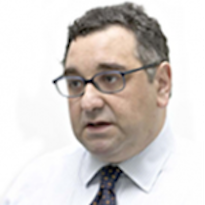
Head of Department Accounting, Finance and Informatics, Kingston Business School, Kingston University London, UK.
Gender (in)equality in Human Papilloma Virus vaccinations and treatment
Plenary: Social impact and responsibility of science and science policy
Giampiero had increasing financial and strategic responsibilities in the Life Science industry. As a corporate finance practitioner, Giampiero gained a significant firsthand experience in valuation of intangible assets, real options and M&A investments. Among his responsibilities at Kingston University London, Giampiero is currently serving as Chair of the Faculty Ethical Committee (FREC) and as the Director of the Institute of Leadership & Management in Health (ILMH). Giampiero is Editor of PLOS ONE, the Open Access Journal of the American Public Library of Science.
Prof Mark W. J. Ferguson

Director General, Science Foundation Ireland (SFI); Chief Scientific Adviser to the Government of Ireland, Ireland.
Improving gender balance in research grant applications
Plenary: Developing and implementing gender equality measures for fair advancement in STEM careers
Professor Mark W.J. Ferguson commenced as Director General of Science Foundation Ireland (SFI) in January 2012 and as Chief Scientific Adviser to the Government of Ireland in October 2012. Previously, Mark Ferguson was appointed Professor in Life Sciences at the University of Manchester in 1984, aged 28, when he was the youngest Professor in Britain. He has held a number of administrative posts including Head of Department and Dean. He played a key role in the internationally acclaimed restructuring of Life Sciences at The University of Manchester. Mark has wide ranging research interests which focus on cellular and molecular mechanisms in scarring and wound healing, developmental mechanisms in normal and cleft palate formation, alligator and crocodile biology. He is the discoverer of scar free embryonic wound healing and temperature dependent sex determination in alligators and crocodiles.
Ernesto Fernández Polcuch
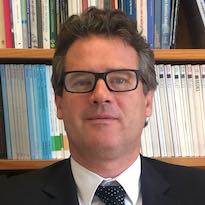
Chief of Section for Science Policy and Partnerships, Natural Sciences Sector, UNESCO.
STI policies towards Gender Equality - filling the gaps
Plenary: Role of policy in achieving societal well-being through science and technology
Ernesto Fernández Polcuch is a Science Diplomat, a specialist in Science, Technology and Innovation Policy, with a M.Sc. in Science, Technology and Society from the National University of Quilmes, Argentina. He is currently Chief of Section for Science Policy and Partnerships in the Natural Sciences Sector of UNESCO. In this position he manages global UNESCO programmes in Science, Technology and Innovation Policy, Science Communication, Gender and STEM, Science Diplomacy, and Science-Policy-Society linkages, including the UNESCO Global Observatory of STI Policy Instruments GO-SPIN, the UNESCO Science Report, the L’Oréal UNESCO For Women in Science Programme, and the STEM and Gender Advancement (SAGA). He was previously a Programme Specialist at UNESCO Windhoek (2008-2010) and UNESCO Montevideo (2010-2015) Offices, managing UNESCO’s Science and Technology Policy, Basic Science and Engineering programmes on a subregional and later Latin American and Caribbean scale.
Prof Tullia Gallina Toschi
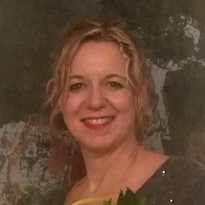
Professor, President of the UNIBO Committee for Equal Opportunity, Alma Mater Studiorum – Università di Bologna (UNIBO), Italy.
PLOTINA: gender balance in research, innovation and training
Parallel: Developing and testing gender equality plans and interventions for structural change in research performing organisations
Tullia Gallina Toschi (PhD Food Science, MSc. Pharmaceutical Chemistry) is Professor at the Department of Agricultural and Food Sciences (DISTAL), University of Bologna (UNIBO), Head of the Research Group of Instrumental and Sensory Analysis and of the Food Waste Innovation Centre. She actually (2016-2020) coordinates two H2020 projects: OLEUM (Advanced solutions for assuring authenticity and quality of OO at global scale) and PLOTINA (Promoting gender balance and inclusion in research, innovation and training).
Laura Getz
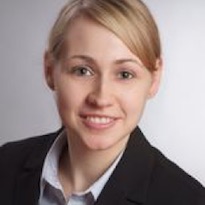
Scientific Associate, Center of Excellence Women and Science, Gesis – Leibniz Institute for the Social Sciences, Germany.
Policy Learning through a Gender Equality Online Platform
Parallel: Communicating gender to inform policy and change societal attitudes (selected abstracts)
Laura Getz, MA, is a scientific associate at the Center of Excellence Women and Science located at Gesis – Leibniz Institute for the Social Sciences. Having studied in Germany, New Zealand and Sweden, she holds an M.A. in Transcultural Studies and a B.A. in Cultural Studies and English-Speaking Cultures from the University of Bremen.
Dr Matteo Grazzi
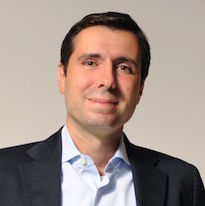
Economist, Competitiveness, Technology and Innovation Division, Inter-American Development Bank (IDB).
Plenary: Social impact and responsibility of science and science policy
Matteo Grazzi is an Economist in the Competitiveness and Innovation Division of the Inter-American Development Bank. Before joining the IDB, Matteo worked as a consultant economist at the UN Economic Commission for Latin America and the Caribbean (ECLAC) in Santiago, Chile and as a researcher at the Centre for Research on Latin American and Transition Economies Studies (ISLA) at Bocconi University in Milan. He holds a PhD in International Law and Economics from Bocconi University and an MA in Development Economics from the University of Sussex (Brighton, UK). His main research interests focus on economics of innovation and creativity, gender and STI, and ICT for development. At the IDB, he designs and manages programs to promote science, technology and innovation in Latin America and the Caribbean.
Prof Gabriele Griffin
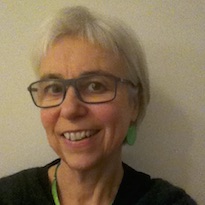
Professor of Gender Research, Uppsala University, Sweden.
Beyond the Gender Paradox: Women’s Careers in Technology-Driven Research and Innovation In and Outside of Academe
Plenary: NordForsk Centres of Excellence
Gabriele Griffin is Professor of Gender Research at the Centre for Gender Studies, Uppsala University and PI for the Nordforsk Centre of Excellence ‘Beyond the Gender Paradox’ which will commence its work in January 2017. She is also Visiting Professor at the Gender Institute of the London School of Economics, UK, and at Åbo Akademi University in Finland. She has taught Women’s and Gender Studies for many years, has coordinated various EU-funded research projects on gender and on research methodologies, is editor of the ‘Research Methods in the arts and Humanities’ Edinburgh University Press) and was co-founding editor of the international journal Feminist Theory.
Rachel Herbert
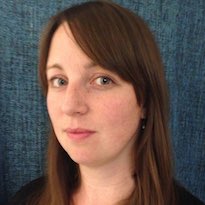
Senior Market Intelligence Manager, Strategy, Elsevier.
Extracting STEM gender indicators from published sources
Plenary: Improving quality of STEM gender equality indicators
Rachel Herbert is Senior Market Intelligence Manager in Elsevier's Strategy unit and specializes in scientometrics (the scientific qualification and analysis of science). She studies scientific research through the lenses of publication and citation trends, with a focus on the information flows that construct and change research disciplines and a view to enabling a deeper understanding of how journals and disciplines relate to one another. Rachel has worked within academic publishing for seven years and joined Elsevier in 2014.
Sarah Hiltner
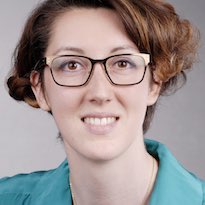
Award Winner of the German National Congress of Gender Health (Bundeskongress GenderGesundheit).
Implementing Gender Medicine: Strategies in Europe
Parallel: Integrating sex and gender in research and researcher training
Sarah Hiltner MA is a physical therapist and sociologist specialized in gender medicine and digital health literacy. She obtained her social science B.A. from the Humboldt University in Berlin and currently finishes her Master in Sociology at the University of Potsdam. She combined her medical and academic education in her bachelor studies, graduating with an award winning thesis about the representation of men and women in cardiology textbooks. She has been working as a student at the Institute of Gender Medicine in Berlin on several projects. In her master thesis she interviewed experts to investigate the implementation strategies of sex- and gender-sensitive medicine at European Universities.
Prof Kumie Inose
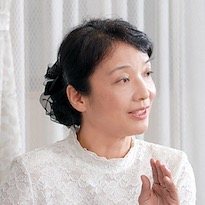
Vice-President, Science Council of Japan.
Plenary: Gender Summit – global policy impact
Kumie Inose is a professor of English Department at Konan University and a Vice-President of the Science Council of Japan. With a doctorate degree in History from Kyoto University, she specializes in modem British history and seeks to develop new analyses of the British Empire through an interdisciplinary approach that integrates cultural, social and intellectual history, postcolonial and gender studies. She has been engaged in a wide range of SCJ activities, including participation in projects on a gender-equal society, gender-related issues, national security, research integrity, the recognition of history, and history education bridging between secondary and higher education. She has also been participated in the committees relating the Great East Japan Earthquake and “Science and Society”.
Dr Gemma Irvine
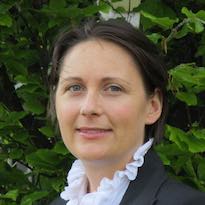
Head of Policy and Strategic Planning, Higher Education Authority (HEA), Ireland.
Fix the system - not women: gender equality in Irish Higher Education
Parallel: Transforming organizational structures, practices, and working conditions in a systematic way
Dr Gemma Irvine is currently Head of Policy and Strategic Planning in the Higher Education Authority (HEA) in Ireland. She completed her PhD in Neuroscience in New Zealand before moving to Ireland in 2004 to work as a Research Fellow in Trinity College Dublin. In 2007 she moved to the HEA to coordinate the Programme for Research in Third Level Institutions (PRTLI), and was the Irish National Delegate for ‘Research Infrastructures’ in the FP7 EU Programme. In 2012, Dr Irvine coordinated the operational merger of IRCHSS and IRCSET into the Irish Research Council (IRC), becoming the Assistant Director of the IRC and the Irish National Delegate for SSH in H2020.
Amy Kordiak

European Lead, Chwarae Teg, Wales, UK.
Parallel: Framework for international collaboration to improve institutions and accelerate change
Amy joined Chwarae Teg (Fair Play) in 2011 and is the European Lead. She is responsible for ensuring that Chwarae Teg’s knowledge is shared beyond Wales, representing the charity overseas, participating in transnational networks and raising awareness of the value of collaborating with other countries. Chwarae Teg has continued to be Wales’ leading organisation for supporting women’s progression in the economy since it was founded in 1992. It works to address four key barriers which persist for women in the workplace, namely: the perceptions of the role of women in society, the lack of flexible, senior positions, out-dated and rigid workplace practices and the persistence of gender stereotypes. These barriers all contribute to the Gender Pay Gap in Wales and prevent the skills’ shortage from being significantly reduced.
Prof Hilary Lappin-Scott

Pro-Vice-Chancellor, Research and Strategic Development, Swansea University, Wales, UK.
Parallel: Framework for international collaboration to improve institutions and accelerate change
Professor Hilary Lappin-Scott graduated from the University of Warwick (BSc and PhD) and then held Post-doctoral Fellowships in the UK and Canada before her appointment as Lecturer in Microbiology at the University of Exeter in 1990. She was awarded a Personal Chair in Microbiology in 1999. Her research group works on unravelling the complexities within microbial biofilm communities and has resulted in the publication of over 200 scientific papers in Microbial Ecology and the successful training of 50 PhD students to completion, many of whom have senior academic or senior posts in multi-national businesses.
Prof Maryse Lassonde
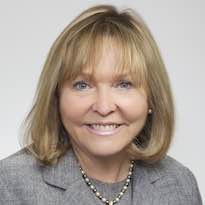
President, Royal Society of Canada; Director, Quebec Natural Sciences and Technology Granting Agency, Canada.
Parallel: Connecting gender science and sustainable development
Professor Lassonde completed a Bachelors degree in Psychology at the Université de Montréal and a PhD in neuropsychology at Stanford University. She went on to become professor first at the Université du Québec à Trois-Rivières (UQTR, 1977-1988) and then at the Université de Montréal where she became Professor Emeritus in 2013. She has been named honorary professor at the University of Auckland and Invited Professor at the Université de Paris V in 2007. Since the beginning of her career, Professor Lassonde has studied several topics, including cognitive development in infants and the effects of sports concussions on the brain. She has published 7 books, and over 300 book chapters and articles in scientific journals.
Prof Heisook Lee

Principal Research Fellow, Center for Gendered Innovation in Science & Technology Researches (GISTeR); Professor Emeritus, Ewha Womans University, Seoul, Korea.
Plenary: Gender Summit – global policy impact
Having served as the founding president of the Center for WISET (Women in Science, Engineering and Technology) until Mach 2016, Professor Heisook Lee now focuses on Gendered Innovations research in STEM fields at GISTeR. Professor Lee was a co-organizer of the Gender Summit 6 Asia-Pacific in 2015. Served as the founding director of WISET from 2001 to 2010 and president of the Korea Federation of Women Scientists associations (KOFWST) from 2006 to 2007, Professor Lee has been an advocate of gender equality in STEM. She was a member of Presidential Advisory Council on Science & Technology and National Science &Technology Commission.
Dr Anke Lipinsky
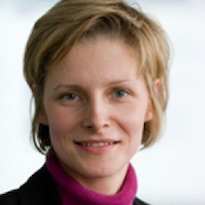
Senior researcher, Center of Excellence Women and Science, Gesis – Leibniz Institute for the Social Sciences, Germany.
Policy Learning through a Gender Equality Online Platform
Parallel: Communicating gender to inform policy and change societal attitudes (selected abstracts)
Dr Anke Lipinsky is a senior researcher at the Center of Excellence Women and Science located at Gesis – Leibniz Institute for the Social Sciences. She holds a PhD in Comparative Cultural Studies and is specialized in EU policy, policy mapping and efficacy assessments in the field of gender and research, as well as in the analysis of gendered organizations. Dr Lipinsky has collaborated in several EU-funded research projects, such as the FP7-project INTEGER (Institutional Transformation for Effecting Gender Equality in Research). She is currently a member of the FP7-funded project GenPORT – An internet portal for sharing knowledge and inspiring collaborative action on gender and science, leading the project team in Cologne, Germany.
Prof Maria Antonia Lledo Barrena
Professor of Physics, Departament de Física Teòrica and IFIC (Universitat de Valencia-CSIC), Spain.
COST Action The String Theory Universe MP1210
Parallel: Developing and testing gender equality plans and interventions for structural change in research performing organisations (selected abstracts)
Prof Lledo is a theoretical physicists, she was awarded her PhD in 1995 in Universidad Simon Bolivar (Venezuela) . She was then a post-doctoral fellow at the Physics and Astronomy Department of University of California, Los Angeles (USA) and at Politecnico di Torino (Italy). She has been at the the Universitat de Valencia since 2003. Her research interest is in the interface on mathematics and physics and she has worked in diverse approaches to quantization of fundamental interactions, including string theory. I'm In the COST Action MP1210 'The String Theory Universe', where she is responsible of the gender issues.
Sabine Ludwig

Research Officer, Department of Medical Education, Charité – Universitätsmedizin Berlin, Germany
Status Quo of the Integration of Sex and Gender Aspects in Medical Education in German Universities
Parallel: Integrating sex and gender in research and researcher training
Sabine Ludwig is an economist and sinologist and has studied in Paris, Shanghai, Beijing, Berlin and Frankfurt. She has worked at the European Commission Directorate General External Relations in Brussels, Belgium and has then joined the European Commission in Beijing, China where she worked in the development and cooperation section focusing on Gender Mainstreaming in EU development cooperation. After six years in China, she returned to Germany in 2008 where she works at Charité - Universitätsmedizin Berlin. Her first assignment was as research officer within the Masterprogramme International Health, she then joined the curriculum development team for the new modular medical curriculum at Charité Berlin, where she was in charge of integrating gender dimensions and perspectives into the new programme. Currently she works in the quality management and evaluation unit of the department of medical education at Charité.
Dr Kas Maessen
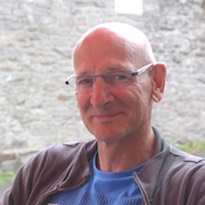
Policy Development and Support, Co-ordinator Granting and Procedures, Netherlands Organisation for Scientific Research (NWO), Netherlands.
Accelerating action to tackle sources of gender imbalance
Plenary: Developing and implementing gender equality measures for fair advancement in STEM careers
Kas is the coordinator of granting, responsible for the development and execution of all central funding schemes. These programmes have in common that researchers from all fields of science are eligible for submitting applications. Among these programmes is the talent scheme Veni, Vidi, Vici, the research infrastructure schemes and the National Roadmap for large-scale research infrastructure, the Gravity programme for large consortia and the Aspasia scheme for promoting women in science. Within his team, the talent and gender diversity policies of NWO are being developed. The policies build on several dimensions. Firstly, stimulating the participation of women in science and stimulating women to achieve higher positions in science. Secondly, developing assessment procedures within the organisation that are gender neutral and evaluating the gender policies of the councils. A third dimension is promoting the development of female staff members of the funding council. Kas studied physics at the Technical University of Eindhoven and obtained his PhD from the university Utrecht in 1988.
Prof Jacques Mairesse
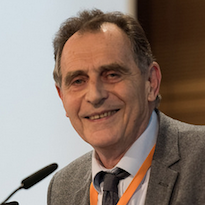
Professor, Maastricht University, Netherlands.
Chair
Plenary: Improving quality of STEM gender equality indicators
Jacques Mairesse is Professor of Applied Econometrics of Research, Innovation and Productivity at the Faculty of Economics and Business Administration of Maastrich University and Professorial Fellow at UNU-MERIT (Netherland). He is also a Research Associate at the Centre de Recherche en Economie et Statistique of "Ecole Nationale de la Statistique et de l'Administration Economique" (CREST - ENSAE) and the National Bureau of Economic Research (NBER, USA). He is Inspecteur general honoraire de l’Institut National de la Statistique et des Etudes Economiques (INSEE). He is also president of the Comite Scientifique de Prospective de l’observatoire des Sciences et du Techniques (OST).
Prof Marja Makarow
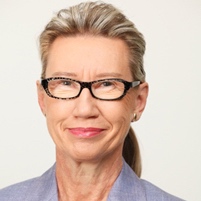
Director, Biocenter Finland; Member, Gender in the Nordic Research and Innovation Area Programme Committee, NordForsk.
Promoting women innovators and advancing people’s quality of life through research-based invention
Plenary: Role of policy in achieving societal well-being through science and technology
Strategies to tackle gender inequalities in STEM in the Nordic countries
Plenary: Strategic priorities for regional STEM gender equality policy
Professor Marja Makarow is Director of Biocenter Finland and Governing Board Member of the European Institute of Innovation and Technology (EIT). She is the former Vice-President of the Academy of Finland – the Finnish Research Council (2012-2016) and Vice-Rector for Research (2003-2007) and Professor of Applied Biochemistry and Molecular Biology of the University of Helsinki. Between 2008-2011, she served as Chief Executive of the European Science Foundation (ESF) in Strasbourg, France.
Dr Elpida Makrygianni
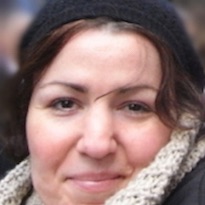
Engineering Education Developer and Coordinator, Faculty of Engineering Sciences, University College London, UK.
50:50 Participation in Pre-19 Engineering Education
Parallel: Interventions to improve participation, retention, and leadership
Dr Elpida Makrygianni is the Engineering Education Developer and Coordinator at UCL Engineering. She is responsible for the development, support and management of Pre-19 engineering engagement programmes and activities for young people aged 5-19 years old in the UK. Elpida received her PhD in computer science and electrical engineering before working as a project lead, consultant and research fellow for the private, public and voluntary sectors. She has led and contributed to UK and US funded projects with a focus on primary, secondary and higher education at Cambridge University, the Melinda and Bill Gates Foundation, William and Flora Hewlett Foundation, National Lottery, UK Department for Education, Google UK, Dyson UK and the James Dyson Foundation. She is the London University Advisor for the Capital Physics Teacher Network for Institute of Physics, member of the Royal Academy of Engineering STEM Network, board member of the UK Volunteering Services Unit, member of the Women in Engineering Society UK and ScienceGrrl.
Prof Ulf Mellström
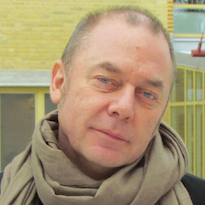
Professor, Centre for Gender Studies, Karlstad University, Sweden.
Risk, masculinity and gender equality
Plenary: Social impact and responsibility of science and science policy
With an interdisciplinary background and PhD (1995) from the department of Technology and Social Change, Linköping University, Sweden, Prof Mellström has held positions as professor and associate professor at Linköping University (1995-2009), Luleå University of Technology (2005-2011), and Karlstad University (2011-present). Ulf has conducted research within the areas of gender and technology, masculinity studies, engineering studies, globalisation and higher education. He situates my work within the three fields of social anthropology, gender studies, and STS (Science and Technology Studies, in particular FTS, Feminist Technology Studies).
Prof Robyn Norton
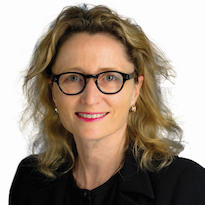
Co-Director, The George Institute for Global Health; Professor of Global Health; James Martin Professorial Fellow, University of Oxford, UK.
Gender trends and patterns in non-communicable diseases in Europe and globally
Plenary: Tackling gender inequalities in Health
Robyn Norton is co-founder and Principal Director of The George Institute for Global Health, a not-for-profit medical research institute that aims to increase the provision of safe, effective and affordable healthcare, especially for disadvantaged populations worldwide. She is Professor of Global Health and James Martin Professorial Fellow at the University of Oxford, Professor of Public Health at the University of Sydney and Honorary Professor at Peking University. The George Institute for Global Health has offices in the United Kingdom (Oxford), India (New Delhi, Hyderabad and Bangalore), Australia (Sydney) and China (Beijing and Hong Kong). With around 500 staff worldwide, The George Institute conducts a large program of population health, clinical care and health systems research, focusing on the development of innovative strategies to Increase access to safe, effective and affordable healthcare and to combat conditions responsible for the largest proportion of premature death and disability worldwide.
Mary Olson
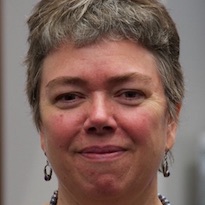
Senior Radioactive Waste Policy Specialist, Nuclear Information and Resource Service, (NIRS) USA.
Atomic Radiation is More Harmful to Women
Parallel: Integrating sex and gender in research and researcher training
Olson joined the NIRS staff in 1991, and has worked primarily on highly radioactive spent nuclear fuel policy. Olson’s background in biology, biochemistry and her own experience with radioactive contamination during her final biological research job, lead her to study radiation health consequences with leading radiation researchers of the 20th Century including Bertell, Stewart, Caldicott and Wing. She now serves as an educator on ionizing radiation impacts for impacted communities, the concerned public and decision-makers. The Fukushima Daiichi nuclear disaster caused Olson to follow on questions from the concerned public about greater harm to women from ionizing radiation exposures. Olson did her own independent review in 2011 of the data presented by the National Academy of Sciences, Biological Effects of Ionizing Radiation VII. Olson’s findings are published in a short briefing paper entitled “Atomic Radiation is More Harmful to Women.”
Dr Sonia Ortega
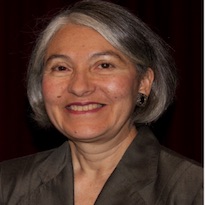
Head, NSF Europe-Eurasia Office, National Science Foundation (NSF), USA.
Latest lessons and achievements from the NSF ADVANCE Programme
Plenary: Strategic priorities for regional STEM gender equality policy
Prior to coming to Brussels to Head the NSF’s Europe and Eurasia Office, Sonia was a Program Director for East Asia and Pacific countries at the NSF’s Office of International Science and Engineering. She was an Embassy Science Fellow at the US Embassy in Malaysia, served as NSF representative in the Antarctic, worked as Director of Education and International Programs at the University of New Mexico and worked as Research Associate at Duke University before joining the NSF in 1989. She holds a PhD in Biology from the University of South Carolina and a Masters in Zoology from Duke University. She conducted research in tropical marine biology, especially in Latin American countries. She is a founding member of the Nicaraguan Academy of Sciences.
Dr Hee Young Paik
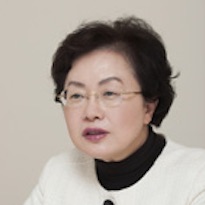
Director, Center for Gendered Innovations in Science and Technology Research(GISTeR), Korea Federation of Women's Science & Technology Associations, South Korea
Gender analysis in the relationship between red and processed meat intake and colorectal cancer: a systematic review and meta-analysis
Parallel: Integrating sex and gender in research and researcher training
Dr Hee Young Paik is Professor Emeritus of the Department of Foods and Nutrition, Seoul National University, Seoul, Korea, and currently working as the Director of the Center for Gendered Innovations in Science and Technology Research (GISTeR), the Korea Federation of Women’s Science and Technology Associations. Dr. Paik received Sc.D. in Nutrition from Harvard’s School of Public Health in Boston, USA. From 1984 to 2016, she worked as a faculty member at Sookmyung Women’s Univ. and Seoul National Univ. in Seoul, Korea.
Dr Rachel Palmén
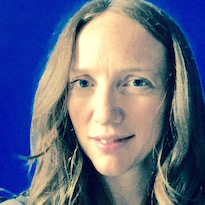 Researcher, notus applied social research/FGB, Spain.
Researcher, notus applied social research/FGB, Spain.
Dr Palmén completed her doctoral research looking at community engagement processes at the neighbourhood level in Brazil and the UK in 2007 at the Centre for Social and Economic Research (CRESR) at Sheffield Hallam University. Her main research interests include co-design processes in different public policy areas, gender equality, particularly in the realm of gender and science and integrating the gender dimension into scientific content. She forms part of the FGB team of the GenPORT consortium which is an FP7 support and coordination action to develop an internet portal for sharing knowledge and inspiring collaborative action on gender and science. She coordinated the user needs assessment for the portal in order to make sure that the portal was co-designed with relevant stakeholders. She was also responsible for coordinating the production of six research syntheses and twenty-five policy briefs which look at, Recruitment and Promotion, Gender Equality Plans, Gender Dimension in Research Content and Gender Balance in Decision-Making, Tackling Sexual Harassment, Intersectionality, Securing Top-Level Support for Gender Equality, Building Gender Competence and Knowledge and Statistics and Methodology.
Dr Caroline Paunov
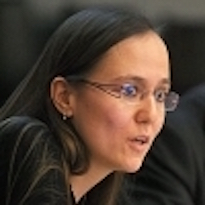
Senior Economist, Directorate for Science, Technology, and Industry, OECD.
Innovation Policies for Inclusive Growth
Plenary: Social impact and responsibility of science and science policy
Caroline Paunov is Senior Economist at the Directorate for Science, Technology, and Industry of the OECD. She is also managing the OECD’s “Innovation for Inclusive Growth” project. Caroline also leads work on assessing the impacts of public research policy (http://oe.cd/assess-public-research) and on evaluating the impacts of national intellectual property rights on innovation (http://oe.cd/ip-studies). Her research work has been published in leading academic journals, including the Review of Economics and Statistics, the Journal of Development Economics, the Canadian Journal of Economics, Research Policy and World Development. Previously, Caroline worked for the World Bank, the United Nations and cooperated on various projects for the public sectors in Brazil, Spain and Germany. She holds a B.A. and M.A. (Hons) from the University of Oxford, a M.Sc. from the University Pompeu Fabra and a Ph.D. in Economics from the University of London.
Nick Perkins

Director, SciDev.Net.
Supporting Gender Awareness in Research Practice and Uptake
Parallel: Communicating gender to inform policy and change societal attitudes (selected abstracts)
Nick Ishmael Perkins is Director of SciDev.Net, the popular science journalism platform for international development. Nick has worked as a journalist, media trainer and project manager for over 20 years in Sub-Saharan Africa, South Asia and the Caribbean. He cofounded Media for Development, an award-winning consultancy, providing support in a variety of areas of communication for global development. Since 2005 Nick’s work has focused on knowledge management and research communication. He trained as a journalist in Canada and has a postgraduate degree in anthropology and development from the University of Sussex. He has written a number of articles and training resources on communication for social change. He was Head of Research Communication at the Institute of Development Studies before moving to SciDev.Net.
Dr Sanne Peters

Research Fellow in Epidemiology, The George Institute for Global Health, Nuffield Department of Population Health, Oxford Martin School, University of Oxford.
Parenthood and the risk of cardiovascular diseases among 0.5 million men and women
Parallel: Integrating sex and gender in research and researcher training
Sanne Peters is a Research Fellow in Epidemiology at The George Institute for Global Health at the University of Oxford. She obtained her a PhD in Epidemiology from Utrecht University and worked as a Postdoctoral Research Fellow at Utrecht University and at the University of Cambridge. Currently, she works on a leading programme of research on women’s health and sex-specific health factors in the field of cardiovascular diseases and other major non-communicable diseases. She has conducted a number of large-scale meta-analyses aimed to determine and quantify whether the impact of major and modifiable risk factors for chronic diseases may differ between women and men. This work has so far resulted in a large number of publications, including two in The Lancet, with several more in preparation.
Dr Elizabeth Pollitzer
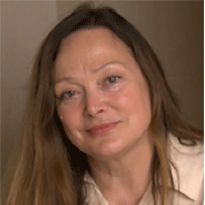
Director, Portia Ltd, UK; founder, Gender Summit.
Plenary: Gender Summit – global policy impact
Elizabeth Pollitzer PhD is founder and Director of Portia, an organization devoted to improving gender equality in STEM and promoting the inclusion of the gender dimension in STEM. She has 20 years’ experience teaching and researching in the Departments of Computing and Management at Imperial College, University of London. Her original training was in Biophysics. She now applies this scientific background to her work as director of Portia. Portia was the coordinator of the genSET project, the Gender Summits were established as part of the genSET project.
Martin Schaaper

Program Specialist, UNESCO Institute for Statistics.
Developing better measures of gender equality in STEM: the UNESCO SAGA project
Plenary: Improving quality of STEM gender equality indicators
Martin Schaaper, a Dutch national, is Head of the Science, Technology and Innovation Statistics unit and the Communication and Information Statistics unit at the UNESCO Institute for Statistics, based in Montreal, Canada. He oversees three global data collections conducted by the Institute, on R&D statistics, innovation statistics and ICT in education statistics, and is responsible for the dissemination of these data on the UIS website, in UIS reports and in the databases and reports of a variety of partners. He is also responsible for capacity building and training activities in developing countries in these areas, and for the development of relevant methodologies. He is also steering SAGA (STEM and Gender Advancement), a global UNESCO project supported by the Swedish International Development Cooperation Agency (Sida). The aim of SAGA is to contribute to improving the situation of women and reducing the gender gap in science, technology, engineering and mathematics (STEM) fields in all countries at all levels of education and research.
Dr Helene Schiffbänker
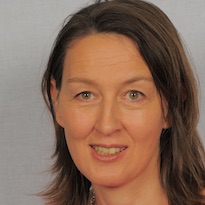
Senior Researcher, Technology, Innovation and Policy Consulting Group, POLICIES – Institute for Economic and Innovation Research, Joanneum Research, Austria.
Developing and implementing gender equality measures for fair advancement in STEM career
Plenary: Developing and implementing gender equality measures for fair advancement in STEM careers
Helene Schiffbaenker is senior researcher in the research group Technology, Innovation and Policy Consulting at POLICIES – Institute for Economic and Innovation Research of JOANNEUM RESEARCH. She graduated in Sociology at the University of Vienna and also did her PhD there. In 1996, she started her career at the institute of Labor market Policy (IFA Wien) in Vienna, working on female labor market participation and innovative employment fields. She joined JOANNEUM RESEARCH in 2001 and focused here on gender in research and innovation policy.
Prof Martina Schraudner
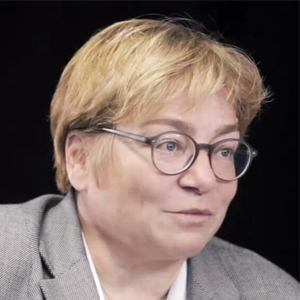
Head of Department, Gender and Diversity in Organizations, Technical University Berlin; Director of Responsible Research and Innovation Unit, Fraunhofer Gesellschaft, Germany.
Chair
Plenary: Strategic priorities for regional STEM gender equality policy
Martina Schraudner received her PhD in Biology from the Technical University of Munich, and worked as a researcher at the Swiss Federal Institute of Technology in Zurich (ETH Zurich) and the Forschungszentrum Jülich. She obtained her "Inauguration as a Lecturer" (Habilitation) at the Faculty of Agriculture and Horticulture at the Humboldt University of Berlin.
Sarah Singh

PhD Candidate, Maastricht University, Netherlands.
Sex and Gender Requirements in Biomedical and Public Health Funding
Parallel: Communicating gender to inform policy and change societal attitudes
Sarah Singh is an external PhD candidate in the Department of Health, Ethics and Society at Maastricht University. Her research explores how the concepts of sex and gender are conceptualized in recent biomedical and public health grant funding requirements introduced in Canada (Canadian Institutes of Health Research), the United States (National Institutes of Health) and Europe (European Commission). Specifically, her research explores the impact of these sex and gender requirements on biomedical and public health research and how contributions from feminist biomedical and public health scientists could serve to improve these sex and gender requirements and research.
Lotta Strandberg
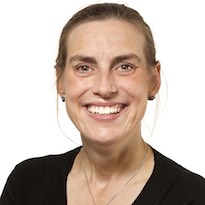
Senior adviser, NordForsk; Associate professor, Bergen University College, Norway.
Developing the Nordic She Figures
Plenary: Improving quality of STEM gender equality indicators
Lotta Strandberg, (PhD., MSc. (Econ.)) is a senior adviser at NordForsk. NordForsk is an organisation that facilitates and provides funding for Nordic research cooperation and research infrastructure. She is responsible for the Nordic programme The Nordic Gender Paradox: Gender Gaps in the Nordic Research and Innovation Area. Through new and innovative, yet focused and result-oriented activities, this joint Nordic initiative will make a significant contribution to gender issues on the research and innovation agenda. The aim of the initiative is to pinpoint the reason for why the research and innovation area has not followed the trend towards a gender equal society and to identify the measures needed to remedy this.
Prof Mari Teigen
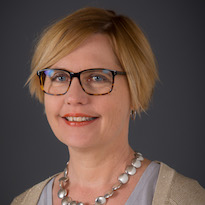
Research Professor/Centre Director, Institute for social research (ISF), Norway.
Gender Equality in Research and Innovation: Research Agenda for NORDICORE (Nordic Centre for Research on Gender Equality in Research and Innovation)
Plenary: NordForsk Centres of Excellence
Mari Teigen is research professor and centre director of CORE: Centre for research on gender equality and NORDICORE: Centre for Research on Gender Equality in Research and Innovation at the Institute for social research in Oslo. Her current research specializes on analysis of gender equality policy; social elites, gender quotas in corporate boards, gender segregation in the labour market and in research and innovation. She is co-editor of Comparative Social Research, member of the editorial board of Tidsskrift for kjønnsforskning (Norwegian Journal of Gender Research), editorial board of NORMA International Journal for Masculinity Studies.
Dr Melanie Thomson
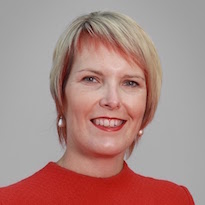
Executive Steering Committee, Women in Science Australia, Australia.
Parallel: Framework for international collaboration to improve institutions and accelerate change
Dr Mel Thomson completed her Honours degree in microbiology and immunology at the University of Melbourne (1998). She then migrated to the UK where she worked on various projects as diverse as allergy and cancer before undertaking further studies. She completed a Masters of Research then a PhD in microbial genetic regulation in Neisseria species, both at University of York, UK. After the award of her PhD in 2009, she became interested the host-pathogen interactions at the Leeds Institute of Molecular Medicine, UK and worked as a researcher on an international team for an EU Framework 6 grant. Dr Thomson returned to Australia in 2011 to start her own research group at Deakin Medical School and the Geelong Centre for Emerging Infectious Diseases.
Dimitrios Tsoutsias
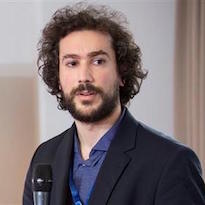
Resource and Documentation Centre Officer, European Institute for Gender Equality (EIGE).
GEAR Action Toolbox
Parallel: Developing and testing gender equality plans and interventions for structural change in research performing organisations
Dimitrios Tsoutsias, (MSc. (Eng.)) is responsible for the operation of EIGE’s Resource and Documentation Centre (RDC). The RDC gives access to more than 500.000 references on gender equality through a network of 15 prominent European libraries on gender. The RDC is also responsible for maintaining the gender equality glossary and thesaurus and for maintaining an EU-wide collection of grey literature on gender equality.
Dr Charikleia (Charoula) Tzanakou
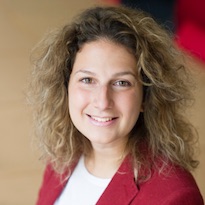
Research Fellow, Politics and International Studies (PAIS), University of Warwick, UK.
Women in academia: living outside of the average
Parallel: Interventions to improve participation, retention, and leadership
Dr Charikleia Tzanakou holds a PhD in Employment Research (with focus on early career paths of researchers) at the University of Warwick. Her research interests are academic careers, highly skilled migration, gender equality and transitions from education to employment. She is currently a Research Fellow at Politics and International Studies (PAIS) at the University of Warwick co-leading a workpackage on careers and culture change in a Horizon 2020 about gender equality in academia (PLOTINA).
Prof Mieke Verloo
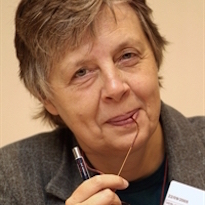
Professor of Comparative Politics and Inequality Issues, Nijmegen School of Management, Radboud University Nijmegen, Netherlands.
Chair
Plenary: Social impact and responsibility of science and science policy
Mieke Verloo is Professor of Comparative Politics and Inequality Issues at Radboud University in the Netherlands, and Non-Residential Permanent Fellow at the IWM, Institute for Human Sciences in Vienna. She is the winner of the 2015 ECPG Gender and Politics Career Achievement Award. She was scientific director of large research projects on gender equality policymaking in Europe (see www.mageeq.net and www.quing.eu). She has extensive consultancy and training experience on gender mainstreaming and intersectionality for several European governments and institutions. Her research is on feminist politics and opposition to gender+ equality in Europe.
Prof Isabelle Vernos
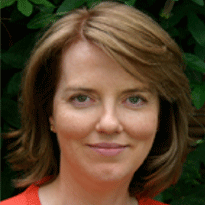
ICREA Research Professor, Center for Genomic Regulation (CRG), Spain; Member, Scientific Council, European Research Council (ERC).
LIBRA: Measuring, monitoring, and advancing gender equality in Life Sciences RPOs
Plenary: Developing and implementing gender equality measures for fair advancement in STEM careers
Isabelle Vernos PhD is an ICREA Research Professor in the Cell and Developmental Biology program at the Center for Genomic Regulation (CRG), Barcelona, Spain where she chairs the office for Gender Balance Affairs. She was nominated European Molecular Biology Organization (EMBO) member in 2005 and she serves as advisor and referee for several European and non-European research organisations and Institutes. Since 2012, she is a member of the Advisory Board for Science, Technology and Innovation for the Ministry of Economy and Competitivity in Spain. She is the coordinator of the Horizon 2020 funded project LIBRA (2015-2019): Leading Innovative measures to achieve gender Balance in Research Activities. Isabelle Vernos is a member of the Euroepan Research Council (ERC) scientific Council since 2011 and chairs its Gender Balance working group since 2013.
Serge Villemure
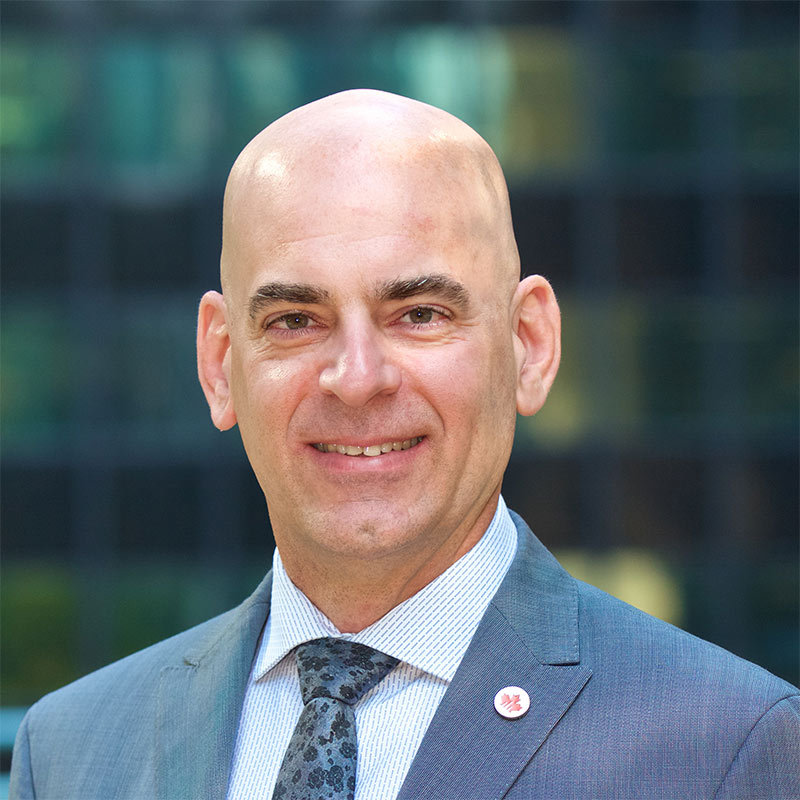
Director, Scholarships, Fellowships and Chairs for Women in Science and Engineering, Natural Sciences and Engineering Research Council (NSERC), Canada.
Plenary: Gender Summit – global policy impact
Serge Villemure graduated in 1989 with a B.Sc. in Kinesiology and obtained his Masters in 1991 in Administration from the University of Ottawa, Ontario, Canada. Serge joined NSERC in 1991 where he worked as a Program Administrator in different disciplines within the Research Grants Division. In 1997, he became Team Leader for Physical and Mathematical Sciences. He spent one year, from June 2000 to June 2001, at the Canada Research Chairs Secretariat as a Senior Administrator, where he contributed to starting up the program, and then returned to his position within the Physical and Mathematical Sciences at NSERC. In 2004, he led the Physical and Mathematical Sciences and Engineering teams as Director. Since 2010, he has been Director of the Scholarships and Fellowships Division. More recently, he also became the Director of the Chairs for Women in Science and Engineering (CWSE) Program.
Dr Claartje Vinkenburg
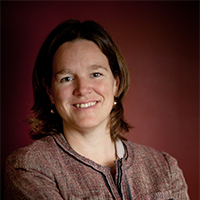
Associate Professor, VU University Amsterdam, Netherlands.
Time to Care in Research Funding: Exploring the Paradox between "Time to Care" Allowances and the "Ideal Academic"
Parallel: Transforming organizational structures, practices, and working conditions in a systematic way
Claartje Vinkenburg, PhD, is affiliated with VU University Amsterdam as an associate professor of organizational behavior and works as an independent expert consultant. Her research activities, partly funded by the European Research Council, deal with gender and ethnic diversity in professional and academic careers. She critically explores the impact of implicit bias, normative beliefs, and discursive practices on career systems, patterns, and outcomes. With a primary focus on systemic diversity interventions, Claartje works together with professional service firms and with research organizations to promote diversity and inclusion in recruitment, selection, and career advancement, as well as sustainability in combining career and care.
Nicole Votruba
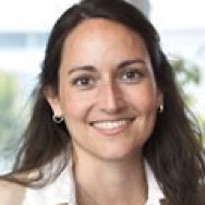
FundaMentalSDG initiative, Maudsley International, Institute of Psychiatry, Psychology and Neuroscience, King’s College London, UK.
Global Call for Action to strengthen mental health in the UN Sustainable Development Goals
Plenary: Tackling gender inequalities in Health
Nicole is a researcher at King’s College London, coordinator of the global FundaMentalSDG initiative, and also works for the Centre for Implementation Science and the CLAHRC South London. Nicole has studied for a BSc and MSc in international relations, international law and gender studies in Munich, Toulouse and Venice. She then worked as a consultant in different political and economic consultancies, and in European research project management. Since 2014, as coordinator of the FundaMentalSDG initiative, and together with an international group of mental health experts they have been advocating the United Nations to give mental health prominence in UN Sustainable Development Goals. For her PhD degree at King's College London, Nicole is researching how mental health can become a policy priority in low and middle income countries.
Prof Lars Wärngård
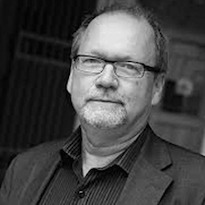
Director Planning and Process Development, Forte, Sweden.
Chair
Parallel: Integrating sex and gender in research and researcher training
Lars Wärngård is Director of Planning and Process Development at Forte (Swedish council for Health, Working life and Welfare). Forte is a governmental agency organized under the Swedish Ministry of Health and Social Affairs. He is also Adjunct Professor in Environmental Chemistry at Stockholm University and Associate professor in Toxicology at the Karolinska Institute. Lars Wärngård also has extensive experience in management in the public and private sector.
Dr Miyoko O. Watanabe

Deputy Executive Directorior, Japan Science and Technology Agency (JST); Director, Office for Diversity and Inclusion, JST, Japan; Chair, Gender Summit 10 Asia-Pacific.
Plenary: Gender Summit – global policy impact
Miyoko O. Watanabe is Deputy Executive Director at Japan Science and Technology Agency (JST). She is also the agency’s Director of the Office for Diversity and Inclusion, and Director-General of the Center for Science Commnication. Dr Watanabe is a member of the Science Council of Japan and chair of the council’s Committee on Comprehensive Synthetic Engineering in Science. She is also a member of the Science and Technology Council at Ministry of Education, Culture, Sports, Science and Technology in Japan, as well as a Member of Specialist Committee on Formulating the Fourth Basic Plan for Gender Equality in the Council for Gender Equality of the Japanese Cabinet Office. She worked in various roles for Toshiba since 1979.
Dr Karen Wosczyna-Birch
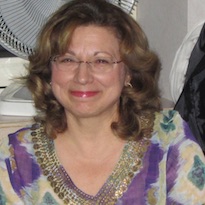
State Director, CT College of Technology; Executive Director & Principal Investigator, Regional Center for Next Generation Manufacturing, USA.
Female Retention in Engineering & Technology using Problem Based Learning
Parallel: Interventions to improve participation, retention, and leadership
Dr Karen Wosczyna-Birch has been a champion of engaging women in nontraditional careers that include engineering and technology education for the past 30 years. Since 1995, she has been the state director of the CT College of Technology where through her leadership she has been instrumental in creating a nationally recognized seamless pathway in engineering and technology programs between all 12 public community colleges in CT with eight universities and over 30 high schools. She is also the Executive Director of the Regional Center for Next Generation Manufacturing, a National Science Foundation Center of Excellence and a Professor at Tunxis Community College.
Dr Angela Wroblewski
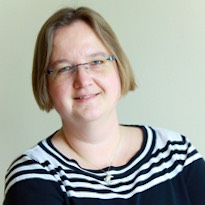
Senior researcher, Institute for Advanced Studies (IHS), Austria.
Gender in research content: Experiences from an Austrian programme
Parallel: Interventions to improve participation, retention, and leadership
Angela Wroblewski is senior researcher at the Institute for Advanced Studies in Vienna. She is a trained sociologist and has been concerned with evaluation of equality programs and policies in schools, universities and the non-university research sector for more than 15 years. Her current research focuses on the development of indicators to measure gender equality. This includes a critical reflection on the validity of available data and indicators as well as the conceptualisation of new indicators. She is also interested in the steering function of indicators and monitoring systems in the context of equality and diversity policies.
Prof Xueyan Yang

Visiting Professor, Department of Biology, Stanford University, USA.
A Reversed Gender Pattern? A Meta-Analysis of Sex Differences in the Prevalence of Non-Suicidal Self-Injurious Behaviour Among Chinese Adolescents
Parallel: Integrating sex and gender in research and researcher training
Prof Yang received her PhD in Management Science from Xi’an Jiaotong University (China) in 2007, and then did Post-doc study in School of Public Health at University of Toronto in Canada (2011-2012) and a visiting professor at Stanford University (September 2014-September 2015). As the PI, Yang has been responsible for more than 20 projects in gender and population and has published more than 40 papers in English and Chinese as well as six monographs. Now her interests are mainly focused on gender imbalance, health risk behaviors and gendered innovation in STEM.
